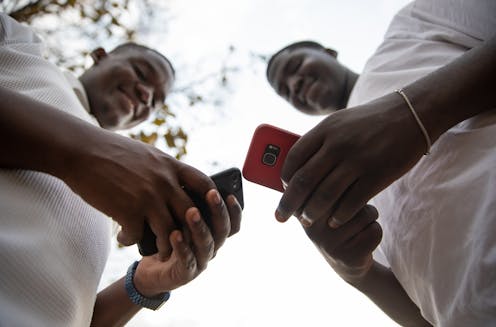
Whether we’re socialising, shopping, banking, studying or working, billions of people around the world spend hours each day online.
This digital immersion has many benefits – and plenty of pitfalls, too. Here are just a few of the articles we’ve published by academics who specialise in various aspects of online safety. They’re packed full of cautionary tales and expert advice for keeping your digital spaces safe.
Identifying online scams
Think it’s only the digitally unsophisticated who get trapped by online scammers? Think again. Cybersecurity expert Thembekile Olivia Mayayise warns that even some of the most seasoned internet users she knows have fallen prey to phishing scams. They hand over sensitive information like login credentials and credit card details to “seasoned and cunning scammers who have honed their skills in the world of phishing over an extended period. Some work alone; others belong to syndicates.”
Read more: Phishing scams: 7 safety tips from a cybersecurity expert
‘Academies’ for would-be cybercriminals
Given that some people make a career out of running online scams, it shouldn’t be a surprise that there’s a market for training aspirant cyber crooks. Cybercrime scholars Suleman Lazarus and Mark Button shine a spotlight on west Africa’s “hustle kingdoms”, which are becoming common in Ghana and Nigeria. At these informal academies, people are taught to carry out digital scams. Sextortion – coercing victims into sharing sexually explicit content and threatening to make it public if the scammer is not paid – is one such strategy.
Read more: Hustle academies: west Africa's online scammers are training others in fraud and sextortion
The psychology of scammers
Luckily, researchers are developing new ways to understand the psychology of online scammers. Rennie Naidoo, a professor of information systems, explains how behavioural science and data science could join forces to combat cybercrime. While data science can be used to identify patterns that indicate potential cyber threats, he points out, it cannot recognise the human factors that drive cybercriminal behaviour. That’s where behavioural science comes in.
Truth and lies on the internet
Disinformation and misinformation have become depressingly common in online spaces. Misinformation arises from people unwittingly spreading falsehoods; disinformation involves the deliberate, planned dissemination of lies. Fabrice Lollia’s experience as a disinformation expert means he’s well placed to offer handy tips for sorting lies from truth.
Keeping kids safe online
It’s not just adults who are at risk online. Children are, in many respects, more vulnerable than their parents and caregivers even though they tend to have a better practical grasp of internet technology than previous generations. Lucy Jamieson, Heidi Matisonn and Wakithi Mabaso have researched various aspects of the ethics of new and emerging technologies, with a focus on how children are affected. The trio provide practical, simple advice for helping children navigate the risks, identify the ethical pitfalls and enjoy the benefits of social media platforms.
Read more: Children and the internet: helping kids navigate this modern minefield
This article was originally published on The Conversation. Read the original article.







